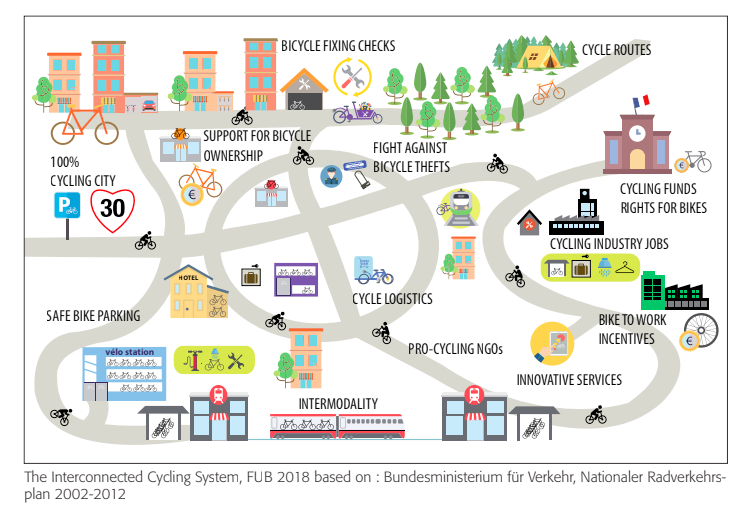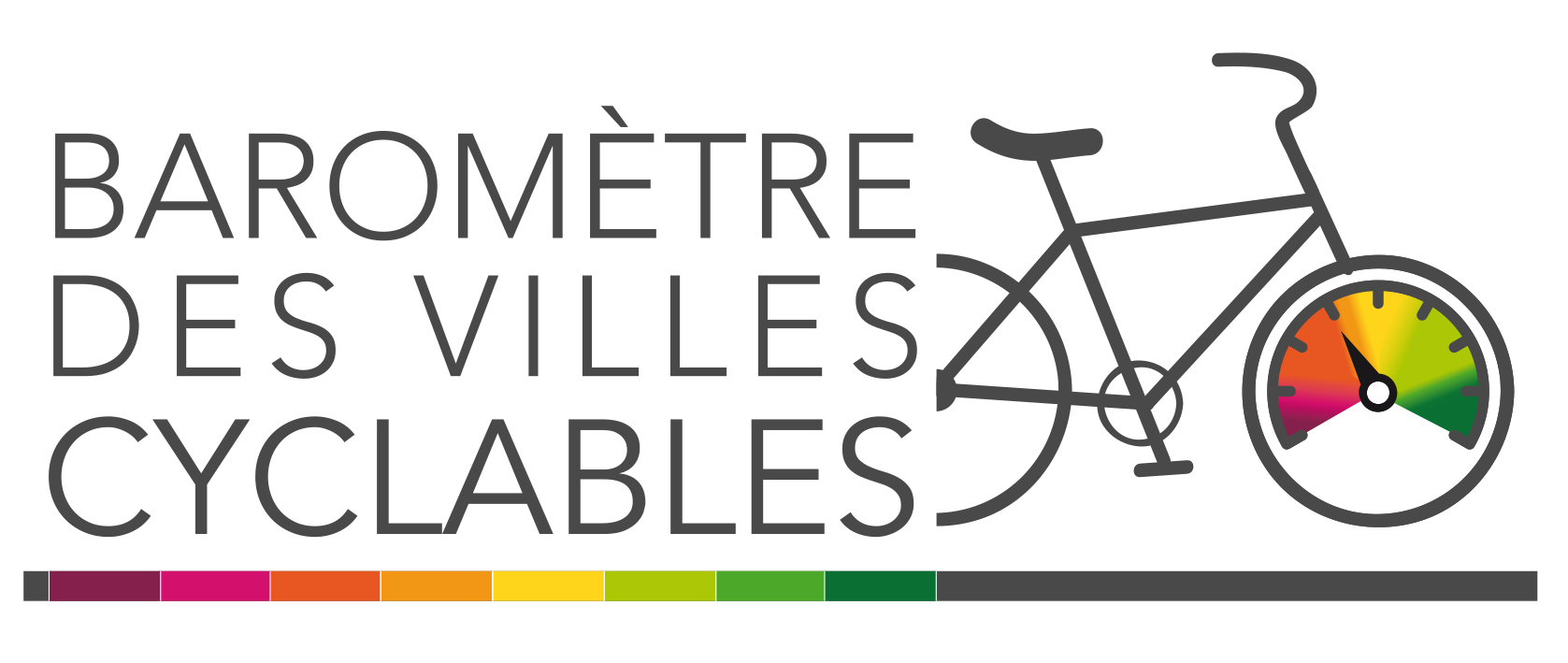
Advocacy Success in France: Cycling Established as a Mode of Transport
Cycling and walking becomes a legal right in France! After months of fierce debate, the French National Assembly approved the Mobility Orientation Law on June 18th, 2019.
The French Cycling Union (Fédération française des usagers de la bicyclette - FUB) was actively involved in the negotiation of the draft mobility bill and successfully advocated for the rights of cyclists. The FUB dedicated eight months to monitoring parliamentary sessions and working on possible amendments.
Agnès Laszczyk, Vice-President of the FUB in charge of lobbying, highlights: "The draft law on mobility is the very first time French MPs and senators have given cycling mobility the importance it deserves. More than 110 amendments tabled¹ in each house, i.e. 10% of all amendments tabled on the draft law, concerned cycling, with nearly all of FUB's proposals (31 amendments in the Senate and 16 in the National Assembly) taken into account. Even more significant were the hours of heated debate during the sessions in favour of cycling."
Creating Cultural Change - Making Cycling Safe and Accessible
Whilst this is essentially a symbolic progress, cycling will be enshrined in the Law, which will provide an excellent judicial pillar. Several changes that build on FUB recommendations can already be identified:
- The National Assembly adopted an official Learn to Ride (Savoir Rouler) educational program to “ensure that every child is able to ride a bike autonomously and safely in public spaces by the time he/she enters secondary school”. The FUB hopes that this will lead to a cultural  change in daily mobility choices. However, this change will only be effective if measures are applied universally and made compulsory!
change in daily mobility choices. However, this change will only be effective if measures are applied universally and made compulsory!
- A new sustainable mobility package has replaced the kilometre allowance (IKV) that could not be combined with other modes of transport. Employers are now able to introduce a fixed and combinable annual package. Figures of up to €400 (previously €200) will be tax-free.
- The maintenance and creation of new cycle routes will become compulsory with the renovation of roads. Over the course of seven years, €350 million, along with endowment funds of €100 million per year, will be allocated to cycling infrastructure projects. Additionally, discontinued cycling routes will become illegal!
- Another FUB advocacy accomplishment marks the introduction of mandatory bike marking, “Bicycode“. The resulting national database will come into force for new as well as second-hand bicycles in 2021. The FUB hopes to take this initiative a step further and inspire more European countries to adopt similar policies by introducing a continent-wide database.
Let’s Talk about the Bicycle
The FUB has been eager to capture the attention of the public eye and engage with citizens, MPs and the French government in debate. The successes of the FUB in the development of the mobility law were advanced with the help of the “Parlons Vélo” campaign. The campaign took force after the presidential and legislative elections in 2017, with the aim of engaging citizens and political leaders on cycling issues. 113,000 citizens were mobilised to participate in the French Bicycle Barometer. French cities were ranked according to cycling-friendliness after inviting cyclists to share their feelings on bicycle use. Encouraged by this momentum, the FUB is set to launch a second edition of the French Bicycle Barometer this September. These results are expected to play a central role in the debates leading to the French municipal elections in March 2020.

The campaign has also inspired citizens to address the French government and MPs by sending them a postcard in support of pro-cycling amendments. This initiative counted over 100, 000 participants. Finally, an online tool, introduced by the FUB, allowed citizens to make their voices heard by giving feedback directly to their local MP, asking them to support or reject certain amendments.
“The Revolution is on the move”
Overall, the work of the FUB has had far-reaching impacts and sparked political interest, as it has illustrated the strong will of citizens to create favourable conditions for cycling. As Olivier Schneider, President of the FUB, notes:
“With, on the one hand, the quality of our 95-page white book of proposals on ‘"how to enhance the law to get France cycling’" and on the other hand the reach of our social media campaign (over 15 000 emails sent to MPs!), MPs that we came across were quick to tell us that they had “received FUB’s proposals and were looking at them closely”. Given the anonymity with which cycling as transport has been considered throughout the years, this feels like an exciting and promising development!”
For example, Elisabeth Borne, who has recently taken the position of Minister for Ecological and Solidary Transition, is now very much aware of the potential that cycling holds. “Mentalities have changed” says Agnès Laszczyk. “Many efforts remain necessary to reach the levels of European cycling leaders, but the revolution is on the move”.
More information on this subject:
Press Release: https://www.fub.fr/presse/anglais-france-towards-cycling-transport
[1] Note for our US readers: Contrary to US law, “tabling” proposals or amendments in other legal systems, such as in France, has the effect of including said proposal or amendment for consideration before a legislative body.
Regions:
Topics:
Contact the author
Recent news!
Upcoming events
Contact Us
Avenue des Arts, 7-8
Postal address: Rue de la Charité, 22
1210 Brussels, Belgium









